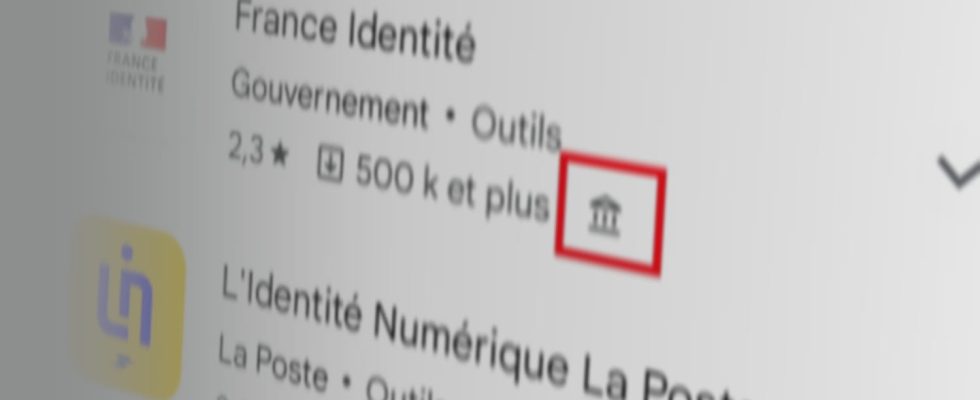Good news if you use an Android: the Google Play Store now displays a very useful little pictogram on certain applications. This will help you avoid downloading and installing counterfeit or even dangerous apps.
We know that the Play Store is not the safest application store, despite all of Google’s efforts to detect corrupted applications. It’s an eternal game of cat and mouse played by the company and the cybercriminals. One of the problems that comes up often is the presence of clone applications, which masquerade as legitimate applications and deceive the user as to their origin. HAS Every time a new popular service is released, a slew of usurpers arrive on the Play Store, as was the case with Threads and ChatGPT. But it’s even more dangerous when cybercriminals pretend to be a government application. Result: while you think about downloading apps like France Identity, you find yourself giving a whole bunch of sensitive personal information to malicious third parties, who will be happy to exploit them.
Also, in order to strengthen the security and transparency of its store, Google has decided to display a small gray “Government” badge, which takes the shape of an official building, on the pages of government applications. You’ll find it on the app page, of course, but also in search results and lists like “Top Rankings.” This is the case, for example, for France Identity, Mon Compte Formation and impots.gouv. If you tap this little icon, a pop-up will appear informing you that the app is verified and indeed affiliated with a government entity. Enough to easily distinguish legitimate applications from those trying to pass themselves off as official.
And suffice to say that you don’t get this badge easily! To acquire it, it is necessary to provide proof that validates authorization to manage official documents, and developers must absolutely use official email addresses when creating their accounts on the Play Store. In addition, applications dealing with sensitive topics, such as voting or personal identification, must go through an additional verification step.
These badges have been deployed in fourteen countries, including the United States, Australia, Brazil, Canada, South Korea, Japan and France. There are already more than 2,000 badged applications worldwide. Hoping that this will reduce the risk of fraud and identity theft.
